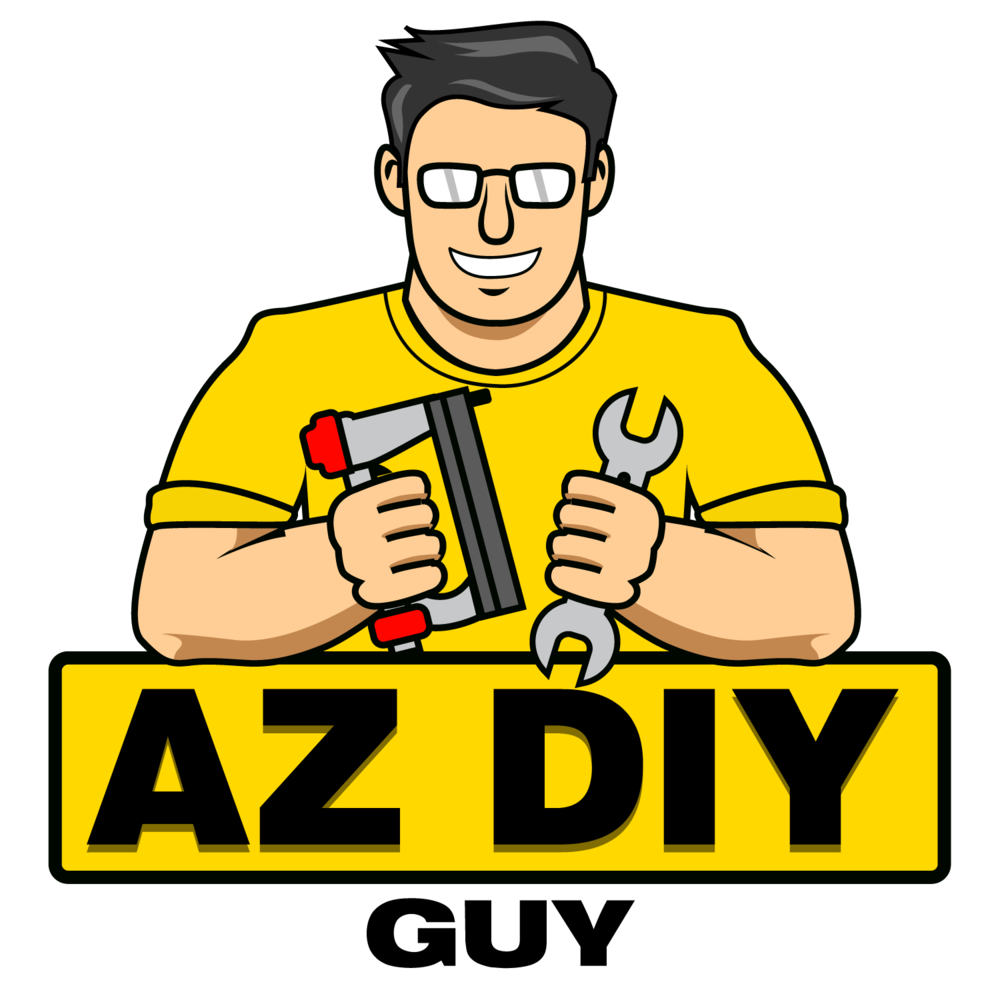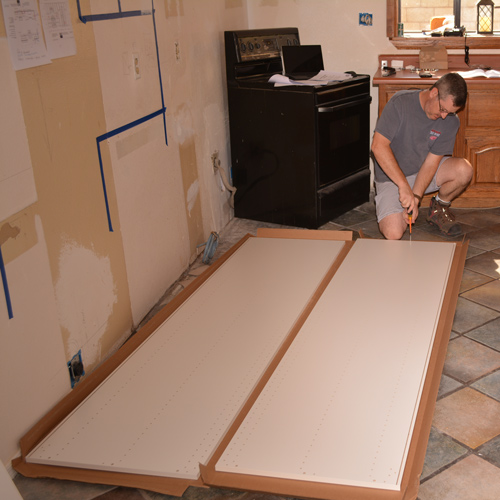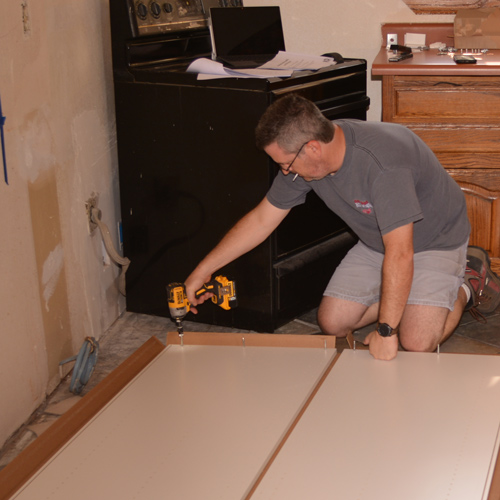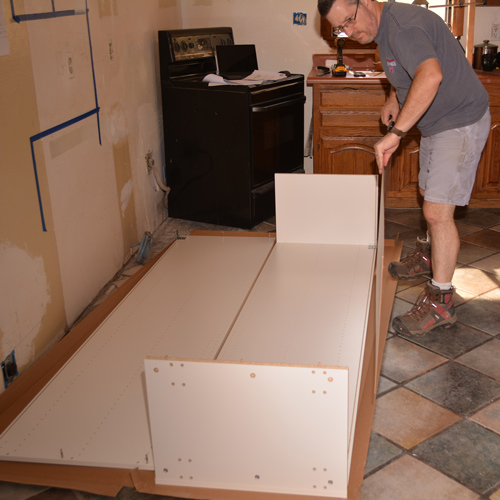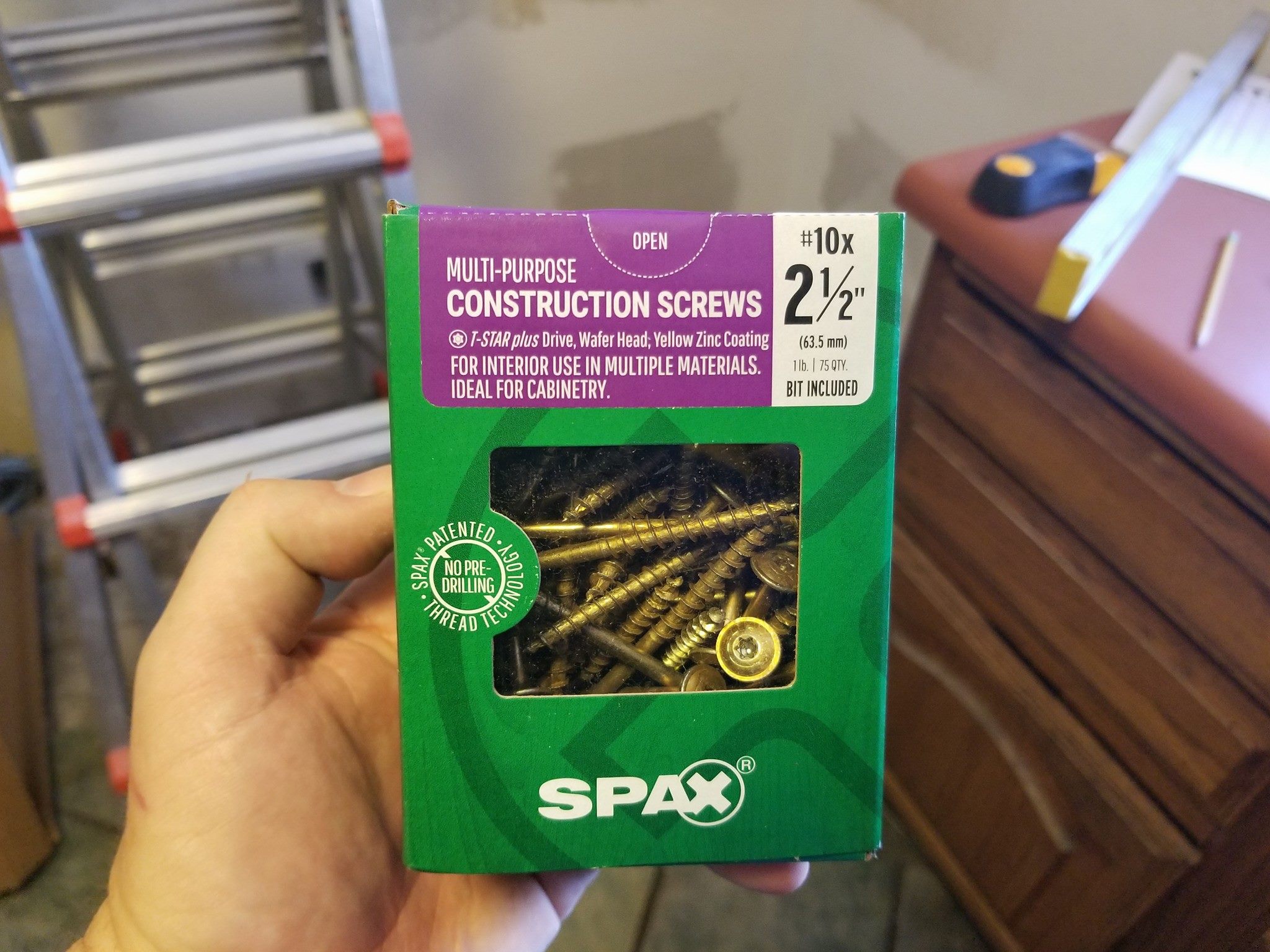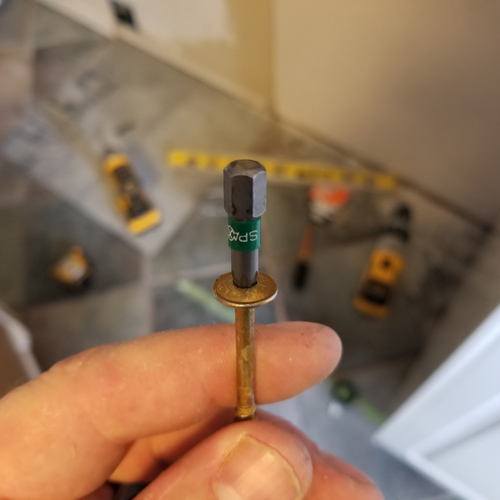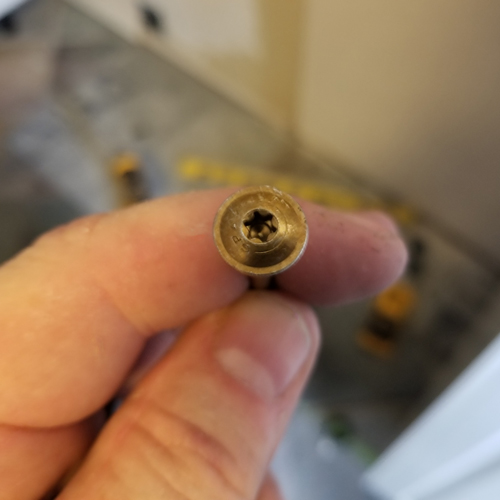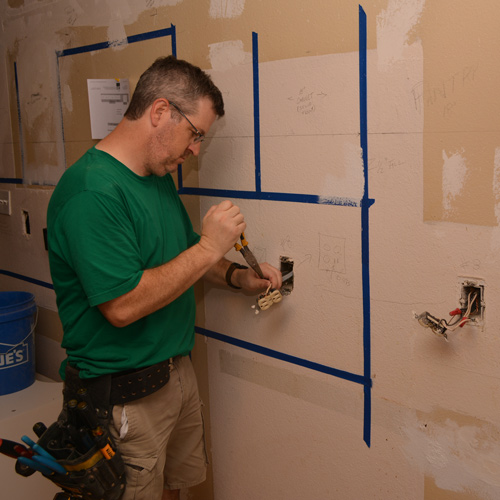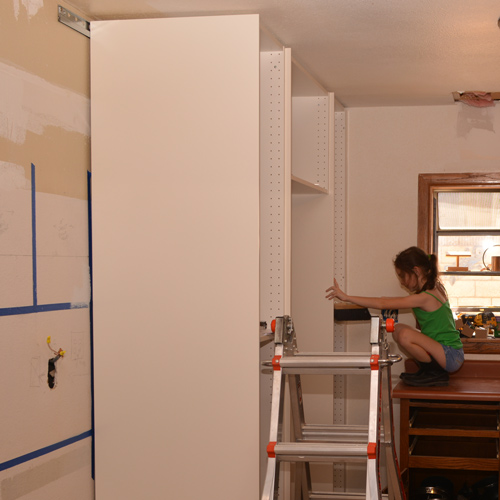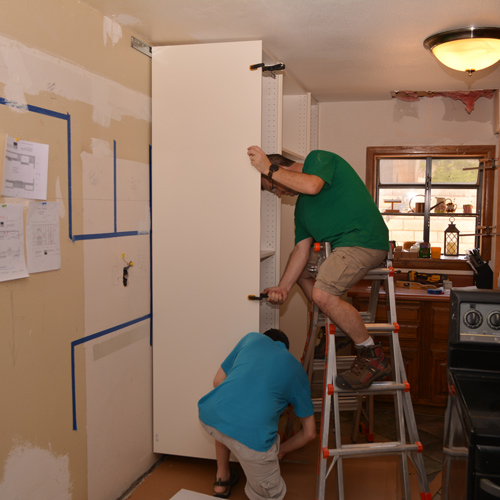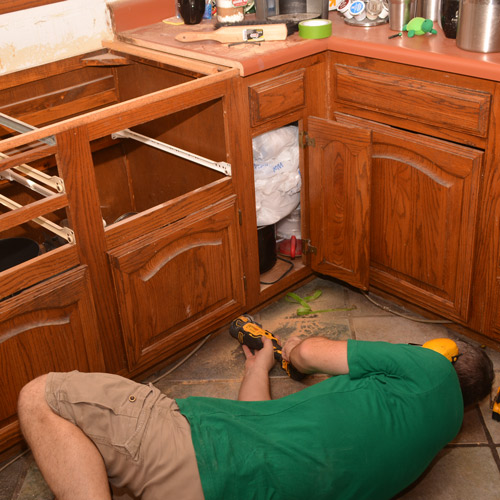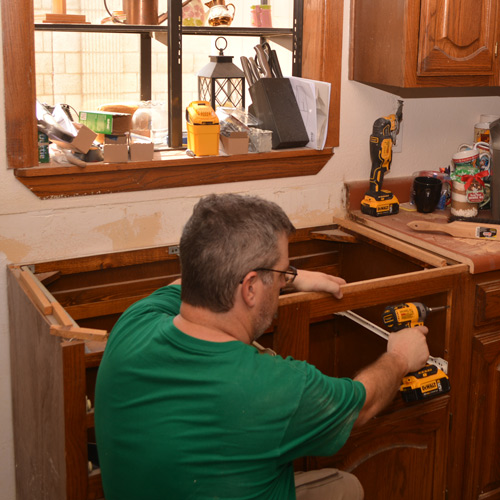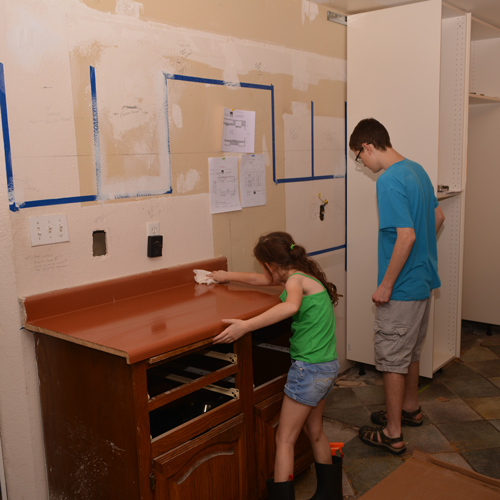In my last Kitchen Remodel post, I had closed up the drywall in the southwest corner of the kitchen. The electrical and water in the corner was complete. Even though I was making good progress over the weeks, it sure didn't look like it. The kitchen had been been sitting, substantially half demolished for months. Nothing was visually happening
No more. With a few less commitments as the summer winds down, I'm pouring my efforts into the kitchen.
Finish the Walls
I taped and mudded the ridiculous amount of seams I'd left behind with all my drywall patchwork. If I had to do it again, I'd bust out a huge area and slip in as much of one sheet as I could. Seams suck.
Pro Tip: Apparently, your work goes a whole lot better if you use a Pirate Captain stance while applying drywall compound.
If Captain Morgan can keep a barrel of his precious spiced-rum from rolling around the deck of his privateer, I could certainly perch precariously backwards on a ladder without taking a tumble. Yeah. We're both bad-asses like that; I just don't wear a cape.
from left: Sir Henry Morgan, Sir AZ DIY Guy
Capt Morgan image property of Diego
After I'd reasonably smoothed out that mess, I rolled on some KILZ Premium High-Hide Stain Blocking Primer.
Rollin'... Rollin'... Rollin',...
I didn't spend any time whatsoever beautifying the areas that would be hidden behind the cabinets. At least two prior hack-job kitchen remodelers had left a Frankenstein patchwork of nonsense; who was I to break the trend? I'm already eating through time and money chasing down more important predecessor tomfoolery like abandoned, leaky water valves and mystery wiring.
Here in Arizona, the exterior, homes just slightly newer than ours look like Taco Bell, stucco siding and tile roofs. They're more difficult to patch up outside. On the interior though, we catch a break when it comes to DIY renovation. Most of the homes here do not have glass-smooth wall finishes requiring a never-ending process of mudding, sanding, or even <shudder> skim-coating. (I recall reading Sarah's battle at Ugly Duckling House a couple years back, before she nailed the process down.)
Nope. Here, we have variations of texture on our walls, mostly orange peel. We can get the wall fairly close to "smooth-ish" and then merrily blast away with a spray on texture, spatter-covering a multitude of finishing shortcomings.
To texture the narrow areas of repair out in front of our cabinets, I didn't really want to fire up the big Wagner Power Tex, like I'd used on the family room remodel. Instead, I picked up a couple rattle-cans of spray texture. I bought a can of Homex wall texture and a vertical-shooting can of spray-on ceiling texture. I followed the instructions and hosed the walls.
Textured in minutes
Since this is a phased-in kitchen remodel and there's plenty more wall work to be done. I'm leaving it at that, no final painting. I just rolled some primer and moved on to the next, actually fun part.
That's right... I'm...
Starting Cabinets!
Ohhhhh yeah! Finally, the cabinets. I couldn't wait any longer to get going with it.
I'll do a more in-depth "how-to" post on installing IKEA cabinets later, when I've picked up more of the tips and tricks. For now, I'll share how the first few went in.
We have stacks and stacks of cardboard-boxed, flat-packed IKEA cabinetry stuffed in nooks and crannies across three rooms, exactly 111 pieces of cabinets, drawers, doors, shelves and hinges. We're living in a cave and have been since the day I brought them home. For regular readers, that was the day the killer bees invaded while we unloaded the truck. Five. Months. Ago.
I brought up our kitchen design created by Inspired Kitchen Design and cross referenced the first cabinet number on the plan with the IKEA part number for the box. Super easy.
Want to buy a stove / desk? Heck, you can have it for free. Come get it.
Excitement!!!
The first box I assembled was one of the two, tall pantry units that would stand as sentries on each side of the new fridge location. IKD had warned me that, with our low ceilings it would be pretty tight fit, but I'd be able to fit it in with a little creative adjustments.
One of the coolest parts of the IKEA cabinet system is a suspension rail that gets mounted on the wall to hang them. It keeps the cabinets lined up and straight and allows some sliding adjustment. To get started I popped my laser level up on the opposite wall and projected a sharp line near the ceiling. This is another one of those tools I find a surprising amount of use for while remodeling.
The successful warrior is the average man, with laser-like focus.
- Bruce Lee
You know, I have one simple request. And that is to have sharks with frickin' laser beams attached to their heads!
- Dr. Evil
I used Spax construction screws to attach the rail into the wall framing. These self-drillers are awesome. Each box comes with a Torx (star shaped) driver bit so there's no slipping like a normal Phillips bit. They positively rip into wood.
I was lucky that I was attaching a rail so close to the top of the wall. Our interior walls only have 24" stud spacing, but the entire upper area had framing at just the right height to hit with the screws. They zapped in super tight with my impact driver. I zapped one in tight every 12" along the rail.
The IKEA pictograms called for two people to lift it up. Two people? HAH! I grunted the first cabinet up into place alone, just me and a chin full of weekend stubble*. Once it hooked on the wall rail, I could easily slide it side to side.
* I think I just tore something.
- AZ DIY Guy
Our kitchen design plan called for a 2" filler-strip to start the bank of cabinets at the wall. I ripped a large piece down on the table saw, clamped it ,and screwed it in from inside the cabinet.
Pre-drilling for the screws.
I had to remove an electrical outlet and snake out an odd piece of cable some knucklehead had added, running it down and under the base molding.
Gracie stopped by to sweep up some sawdust. Jack came in to help with some muscle. We lifted the next two cabinets into place and added 1/2" thick filler panels to help with a recessed door / finished look.
More Demolition
The U-shaped kitchen would come to an end as we switch to a galley style. I couldn't add drawers and doors to the end pantry until I moved the cross section of base cabinets. The bottom of the U would go. I sliced the counter top off with a circular saw and oscillating multi-tool.
I chopped the kick-plate and unscrewed the section before dragging it over to serve as a temporary kitchen piece as we went into the workweek.
I couldn't help myself from unpacking a couple pantry doors before wrapping up work. I hadn't done the final electrical terminations for the stove yet, so I tucked it in the new fridge hole for the time being.
I'm at a part of the job where it's really starting to show. Remember where I started, in the hideous cave kitchen with wallpapered soffits, orange countertops, and haphazard cabinet placement.
Before the Renovation
Current KITCHEN Status
This is episode 14 in the nail-biting, edge-of-your-seat, kitchen remodel saga. Check out all the episodes and where it all started on my Kitchen Remodel Project Page.
UPDATE: I'm honored to have his post be featured by my friends at Top Reveal. Check out this article featuring some of my talented blogger peers exploring some cool DIY Cabinet and Shelf Ideas. I may have to incorporate some of them towards the end of this project!
